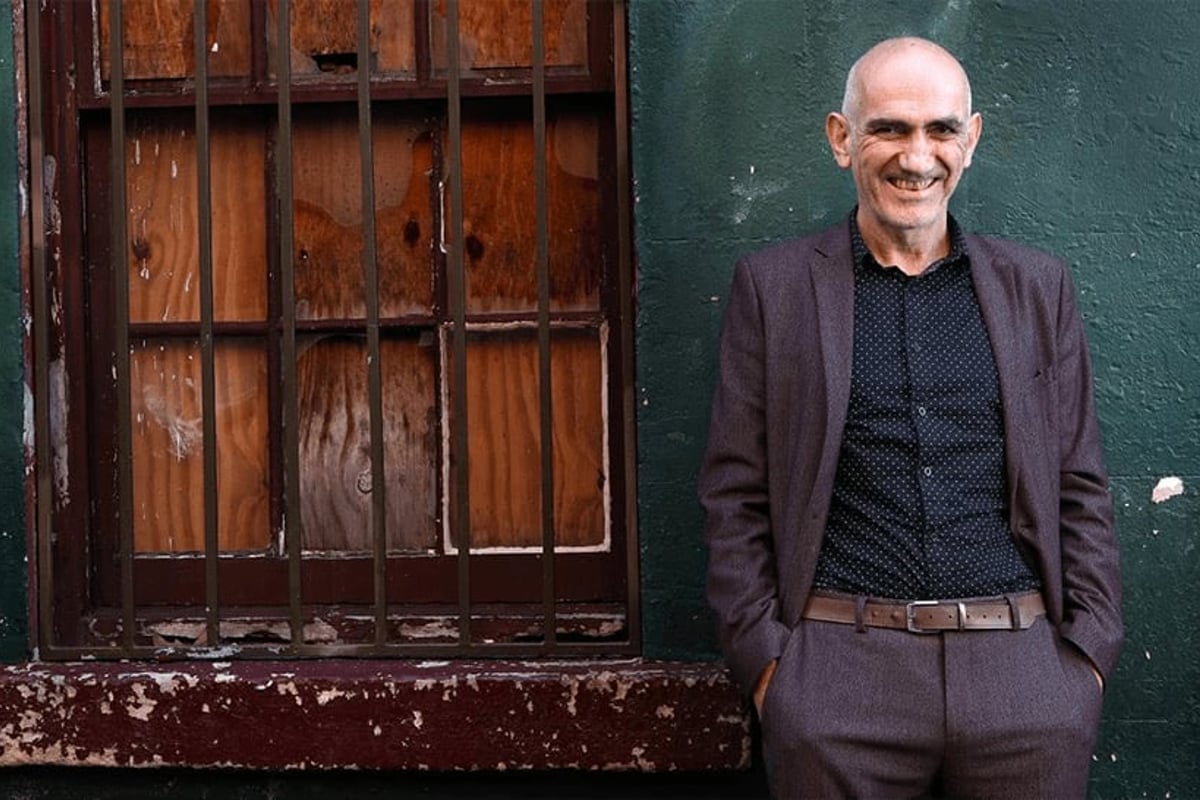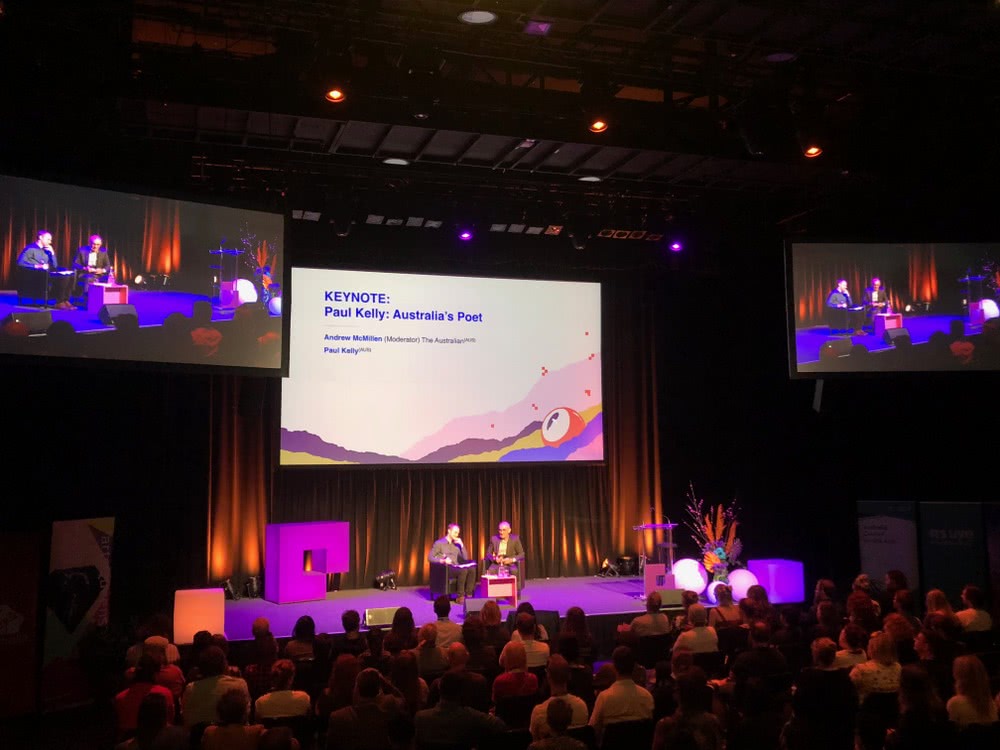Paul Kelly gives songwriting masterclass, talks indigenous culture and hip-hop in Bigsound keynote

Do the work, but don’t work too hard. Say “yes,” sometimes “no”. Jot it down. And relentlessly pursue the time to do absolutely nothing. These are just a handful of secrets to Paul Kelly’s songwriting rulebook, which the ARIA of Famer explored during a keynote interview Wednesday morning at Bigsound.
Kelly, a revered songsmith who has won every plaudit an Australian creator can rake-in, admitted his process for making the magic happen was counterintuitive and, to an outsider, boring.
“Songs take you by surprise. I don’t think I’ve ever sat down and thought, I’m going to write something about this. The good songs come at you sideways when you’re thinking of something else,” he told The Australian’s music writer Andrew McMillen during an hour-long session to start the day’s conference action.

Andrew McMillen and Paul Kelly at 2017 Bigsound
“What all writers look for is to be surprised, astonished, something they didn’t foresee.
It’s not sitting around waiting for inspiration or some great power. You have to do the work.”
Forget the graft, Kelly is devout fan of playtime. To enter the elusive songwriting zone, Kelly admits he’ll flick through his notes, sometimes for days. “I say it’s fun, but it’s mostly boring. I’m mostly bored and then something happens and I get excited,” he quipped.
“I’m very conscious of trying to carve out time, do-nothing time…time to bore yourself until something happens.”
Those essential downtime moments aside, Kelly’s 40-years-plus career has seen many thrills, from induction into the ARIA Hall of Fame, Australia Day honours and the prestigious Ted Albert Award, and his first ARIA No. 1 album with 2017’s Life Is Fine. His single “Firewood and Candles,” a collaboration with Billy Miller, is the reigning APRA Song of the Year winner. And a fair few surprises, which included the growing popularity of “How to Make Gravy,” a Christmas song set in prison, which doesn’t have an obvious chorus and didn’t win spins at radio.
Kelly also spoke of his journey to understanding and connecting with indigenous culture, one of the cornerstone themes of this year’s summit, and addressed the whitewashing of indigenous history. “There was a war and we never owned up to it. And that’s one of our biggest problems,” he said. “We never admitted that it happened and we can’t go far forward until we acknowledge that.”
A relatively innocuous question on hip-hip turned up the goods when Kelly reeled off the names of Grandmaster Flash, N.W.A, Gang Starr and others who he’d discovered during his time living in Los Angeles in the early ‘90s. Of today’s crop, Kendrick Lamar music was the best entry point for people immune to hip-hop’s allures. “It’s rich musically, it’s political, it’s accessible,” Kelly said.
Kelly’s creative juices have been flowing of late. Album No. 24, Nature, will arrive in October. Next year should see the release of a new project with Adelaide pianist Anna Goldsworthy, employing music and poetry.
When in doubt, or clouded by life and its complexities, Kelly refers to the sound advice once handed down by Cold Chisel’s legendary lyricist Don Walker. “Keep writing.”
The 17th annual Bigsound summit wraps this Friday, Sept. 7.
This article originally appeared on The Industry Observer, which is now part of The Music Network.






























